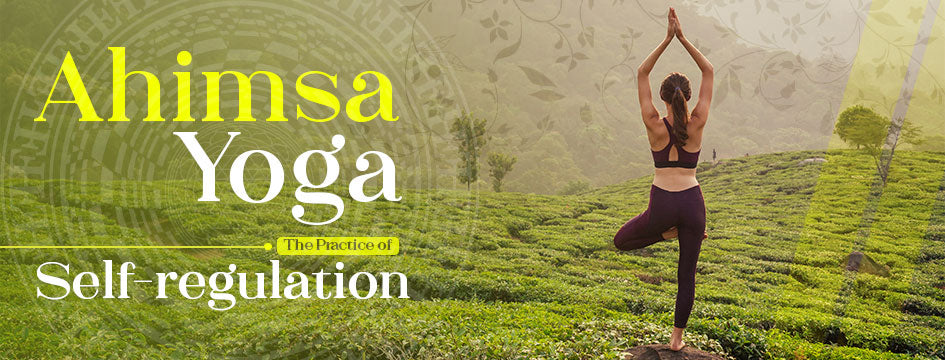
Ahimsa Yoga - The Practice of Self-regulation
Ahimsa, which is more commonly known as "nonviolence" but more essentially transposed from Sanskrit as "absence of injury," is an ancient concept that has its roots in the Vedas. The Vedas are a collection of Indian religious and philosophical writings that date as far down as 1900 BCE, which is about 4,000 years ago.
The Vedas, which roughly translates to "divine knowledge," was originally an oral tradition that was handed down from generation to generation for hundreds of years. They were not credited to any particular author. A wise man named Vyasa was the one responsible for eventually compiling and writing down in Sanskrit the four Vedas that went on to become the Bhagavad Gita.
It is stated that another wise man named Patanjali studied these Vedic books and wrote what is now known as the Yoga Sutra. This literature serves as the foundation for the eight limbs of traditional yoga.
Ahimsa - Non-violence

Ahimsa is translated as "non-injury." The practice of nonviolence is seen by Jains as the most important responsibility that belongs to everyone. It is a necessary prerequisite for achieving the ultimate aim of Jainism, which is to be freed from the endless cycle of reincarnation.
According to Jainism, any action on the part of a person that directly or indirectly encourages the killing or injury of another is considered violence, which results in negative karma. Ahimsa is practiced to avoid the accrual of negative karma in whatever form.
Jains, Hindus, and Buddhists all strive for the same objective, but Jains take a more all-encompassing approach to achieve it. Their lives are shaped by the meticulous and exhaustive manner in which they apply nonviolence to day-to-day activities and the food they eat; this trait is the single most significant indicator of Jain identity.
Ahimsa Yama

Ahimsa is one of the eight limbs defined as yama, which are practices of self-regulation aimed to liberate us from being captives of our human desires. Ahimsa is included in the first of these yama activities.
The Yama practices can be seen as purification rituals for our thoughts, bodies, and spirits, and they make it possible for us to lead lives that are more conscious and emancipated. Ahimsa is a key principle of Buddhism, Jainism, and Hinduism, in addition to serving as a yama in yoga. Jainism also considers it to be an essential component of their religion.
Ahimsa is a moral and ethical principle that yogis aim to uphold as one of the five yamas. In a nutshell, ahimsa is the idea that violence is never justified.
At first glance, the idea of violence towards another person is usually what comes to mind, so it would be easy to assume that we have this figured out. The whole scope of ahimsa, as well as its importance and, at times, difficulty, become apparent upon closer inspection.
Beyond the physical postures that help us feel good and stay grounded, the guiding idea of ahimsa emerges as we learn more about yoga.
Ahimsa - The Non-violent Yoga

While our physical exercise regime doesn't advance as rapidly as we'd like, it's easy for everyone, from total amateurs to the most skilled yogi, to feel upset. By keeping Ahimsa in mind during our yoga practice, we can let go of self-criticism and learn to love and accept our bodies as they are right now, strengths and flexibility included.
Here, non-violence in the material sense implies not pushing oneself to the point of harm. We challenge ourselves to grow, leaning into the unknown even if it's terrifying, but we never harm ourselves in the process.
When we release our rigid beliefs about what we should be able to accomplish and refrain from belittling ourselves in our minds, our bodies respond by cooperating with us rather than fighting against us. Allowing the body to be a means to an end, rather than a barrier, is something we can do.
As we learn to honor our limits and tune into our bodies, we can turn this into a practice that can last for the long haul and help us grow as people.




